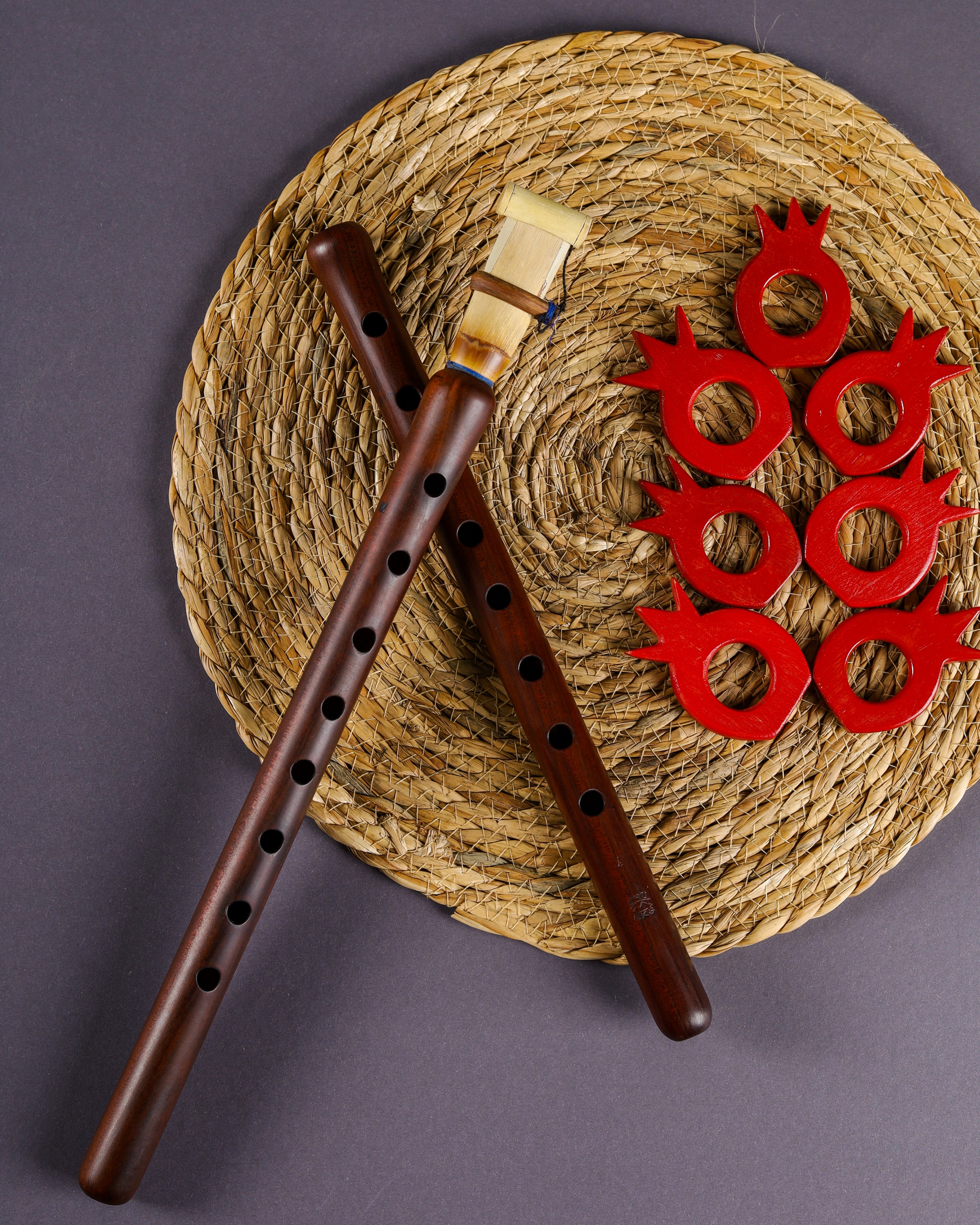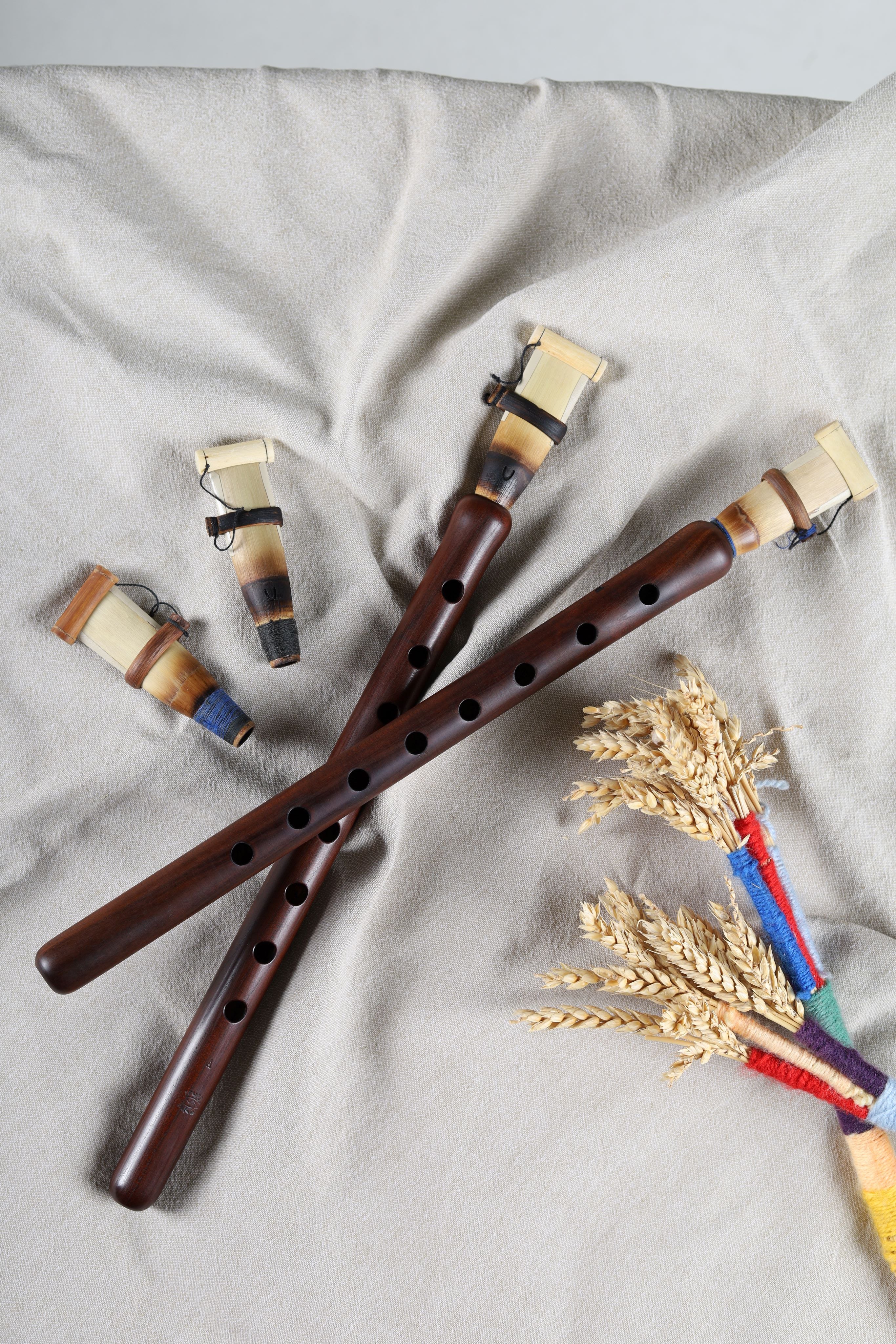The Duduk is a double-reed wind instrument originally from Armenia, used in traditional Armenian music for centuries. However, it is also claimed and used in the traditional music of neighboring countries such as Turkey, Georgia, Iran, and Azerbaijan, where it may be called differently and have variations in its construction and use.
Despite these regional differences, the Duduk remains an important instrument in the folk music of these countries and is appreciated for its warm timbre. La Maison Duduk strives to highlight the richness and diversity of the regional musical culture, offering quality instruments and providing information on their history and use.
In Kurdistan
The Duduk, also known as the fiq, holds a particularly significant place among the Kurdish people. Used in a wide variety of genres and musical styles, the Kurdish duduk is particularly distinguished when integrated into dengbej, a Kurdish musical genre performed in duo or trio (consisting of the singer, Duduk player, and saz), featuring melancholic melodies where the singer addresses the challenges of everyday life.
The uniqueness of the Kurdish Duduk is immediately perceptible. Its timbre is distinguished by its higher and more piercing sound compared to the Armenian or Azerbaijani Duduk. Surprisingly, the timbre of the Duduk depends as much on the reed used as on the instrument itself. The characteristic timbre of the Kurdish Duduk results from a tighter clamping of the reed. In other words, the player generally tightens the reed more with their tuning belt and applies additional pressure with their lips, narrowing the reed's opening and producing a higher sound. Moreover, the Kurdish Duduk is often made of walnut or plum wood, unlike the Armenian Duduk, which is usually made of apricot wood.
For music lovers with a keen ear, it's notable that the use of vibrato is frequent in the Kurdish interpretation of the Duduk. This practice is unique to the Arab-Muslim world and is also found in other instruments such as the saz, oud, ney, etc.
It's important to note that the issue of vibrato in Armenian music can be complex and vary depending on the context. Vibrato may be used moderately in some styles of Armenian music, while in others, it can be considered inappropriate or excessive. Additionally, the rejection of vibrato in some Armenian music contexts may have historical and political reasons related to relations with neighboring countries. Nevertheless, it's crucial to note that Armenian music is influenced by many currents and traditions, and some Armenian artists may also integrate vibrato into their playing depending on their personal style and musical context.
The Kurdish Duduk
In Georgia
Called Duduki in Georgia, the Duduk is a widely used instrument in the Georgian region. The timbre of the Georgian duduk shares similarities with the Armenian duduk, and given that the Georgian people have historically been predominantly Christian, they have always maintained close cultural ties with the Armenians.
The Duduk is used in various musical genres such as folk music, popular music, and particularly in traditional dances. Examples of dances include Kartouli, Kintooneri, or Baghdadoori, during which the Duduk player holds a prominent place in orchestral performances.
The timbre of the Georgian Duduk is quite similar to that of the Armenian Duduk, although it is slightly distinguished by a less round and warm sound, attributable to the use of thinner reeds.
In Azerbaijan
The Duduk, known as Balaban in Azerbaijan, as well as in Iran and the Turkic world, is a widely used instrument in folk, traditional, and contemporary music, similarly to the practice among Armenians. Its timbre is most similar to that of the Armenian Duduk, but this similarity is explained by the historical cohabitation of the Armenian and Azerbaijani people.
During the Soviet regime, these two peoples shared daily life in major cities such as Yerevan or Baku. During this period, they exchanged their know-how in Duduk making and playing techniques, explaining the great similarities in playing this instrument.
The Azerbaijani Duduk

